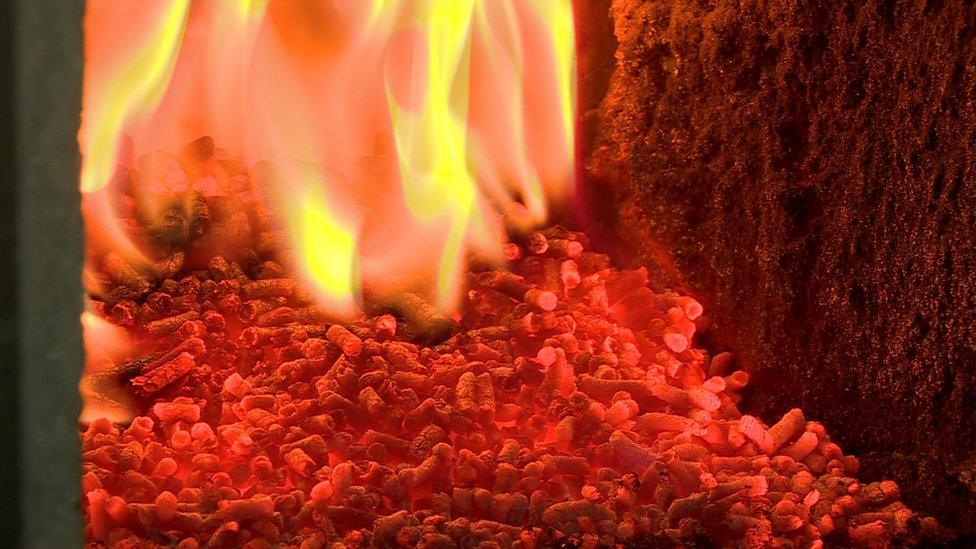RHI Inquiry: Five moments you might have missed
- Published
BBC News NI picks out some of the key moments from the RHI inquiry you might have missed.
After more than 100 days of evidence, the public inquiry into Northern Ireland's flawed green energy scheme is beginning to wind down.
It is examining what went wrong with the Renewable Heat Incentive (RHI) scheme.
It was set up in 2012 to encourage uptake of eco-friendly heat systems - but large subsidies left NI taxpayers with a £490m bill
BBC News NI picked out five key moments you might have missed this week.

1. 'Panic time' when scheme spike emerged - Emer Morelli
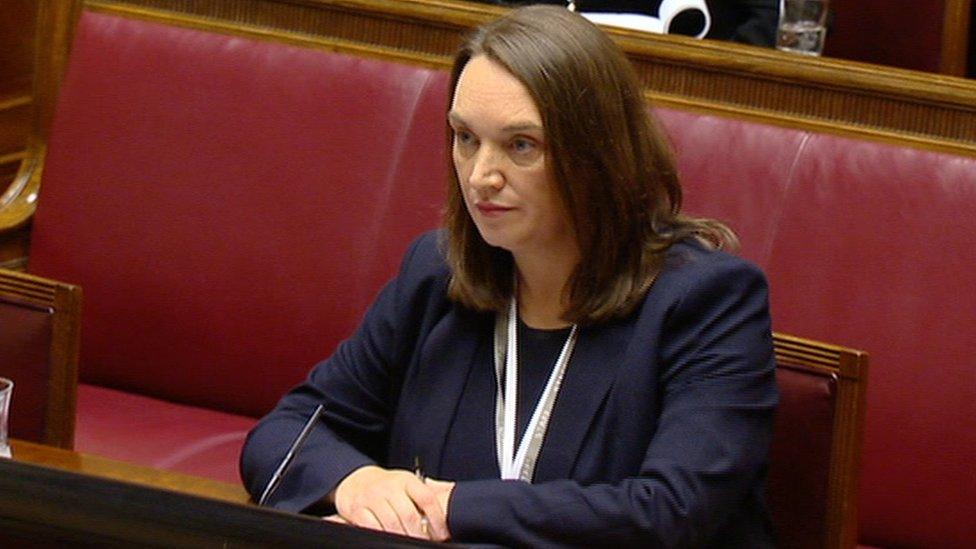
Emer Morelli said officials in the finance department should have taken more care to establish how the RHI scheme's budget worked
Tuesday saw a witness who has already appeared at the inquiry return for more questioning.
Emer Morelli - a senior official in the finance department - was candid about what more she could have done, but also spoke at length about where she felt the enterprise department, which had set up the scheme, had gone wrong.
In autumn 2015, as plans were being worked through to introduce cost controls and reduce the level of lucrative subsidies, enterprise officials had also submitted another business case to the finance department requesting extra funding.
It was approved based on an estimate of £30m a year - but then in December, Ms Morelli received a letter telling her the estimate had risen to £44.2m.
The reason: a four-week delay in introducing those vital cost controls, which allowed hundreds of new applicants onto the scheme, severely impacting the budget.
Ms Morelli said her first reaction to that news was one of "disbelief", adding: "This was red button, panic time."
The scheme was not shut down until February 2016.

2. 'Six months' for minutes to be signed off - Joseph Aiken
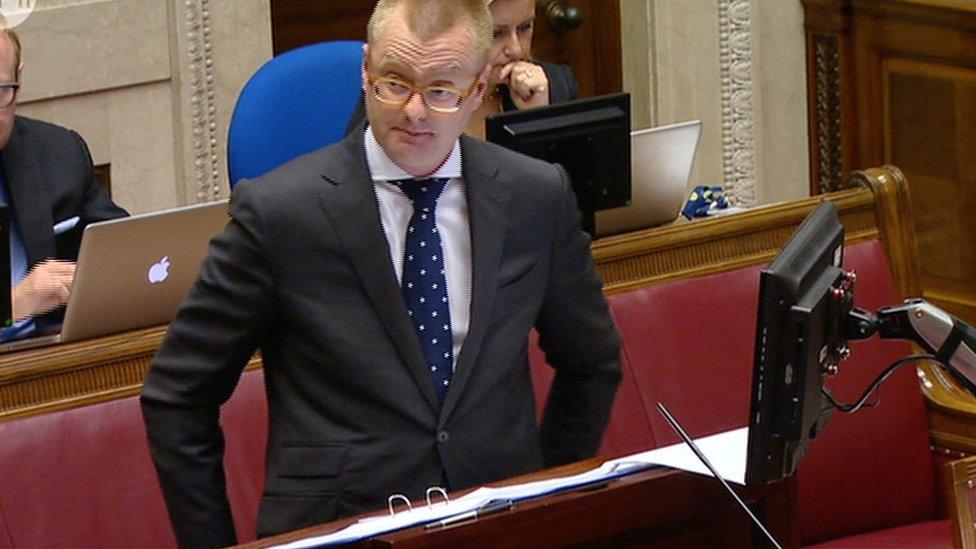
Inquiry counsel Joseph Aiken led Tuesday's hearing at the RHI inquiry
The RHI inquiry has heard much evidence already about the lack of minuted meetings within Stormont departments, and the slow nature of getting documents and memos approved under proper procedures.
On Tuesday afternoon, during Ms Morelli's hearing, inquiry counsel Joseph Aiken revealed that the minutes of a key scrutiny meeting about RHI took six months to get signed off.
The meeting in question took place in October 2015, but its minutes were not signed off until the following March.
Mr Aiken suggested the inquiry panel could recommend instituting a time limit for minutes to be completed, when it comes to drawing up its findings later this year.
"I don't know if any recommendation you're going to make about minute keeping, might require a time limit to be set for their automatic completion," he said.

3. 'I regret not asking more questions about RHI' - Andrew McCormick
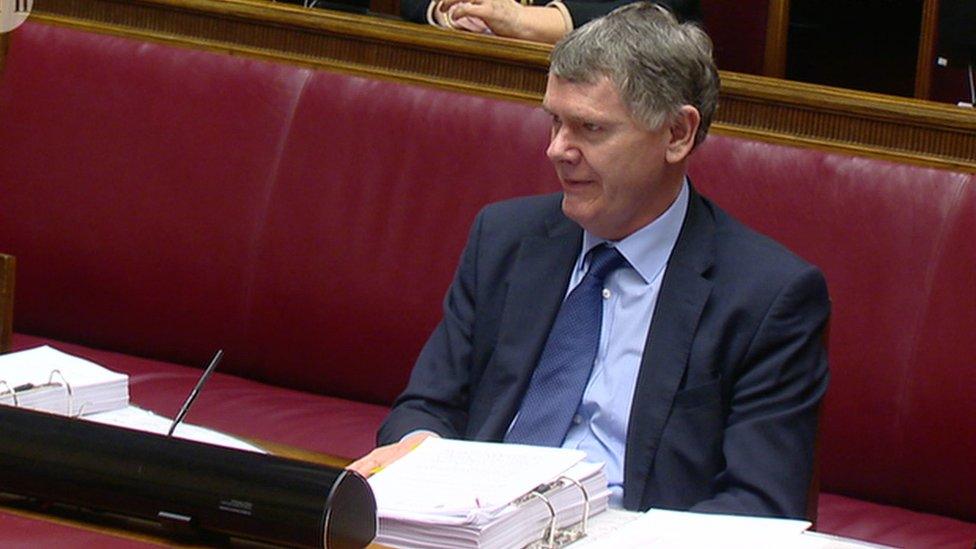
Andrew McCormick was the enterprise department's permanent secretary from 2014 until February 2018 when he moved to work on Brexit matters
On Wednesday, another face familiar to anyone following the minutiae of the inquiry returned - Andrew McCormick, former permanent secretary at the enterprise department when problems with RHI emerged.
He's a key figure because in January 2017, he named a former DUP adviser as the instigator of delaying cost controls, which did major damage to NI's public finances.
The inquiry heard Stormont officials may have been able to suspend the scheme before its budget spiralled in autumn 2015: an option to do this was floated at a meeting in June that year.
But there seemed to be a disagreement between finance and enterprise officials about the best way forward and following legal advice, the suspension option wasn't chosen.
Mr McCormick said he had never seen the legal advice, nor did he ask to see it.
He said the view of energy officials in the enterprise department, was that RHI was a good scheme that was finally delivering.
Mr McCormick conceded he had, too often, accepted at face value what officials were telling him, and that he should have asked more robust questions.
"There's so much there that could have been looked at, this looks to me like a collective failure," he added.

4. DUP advisers withheld key information - Andrew McCormick
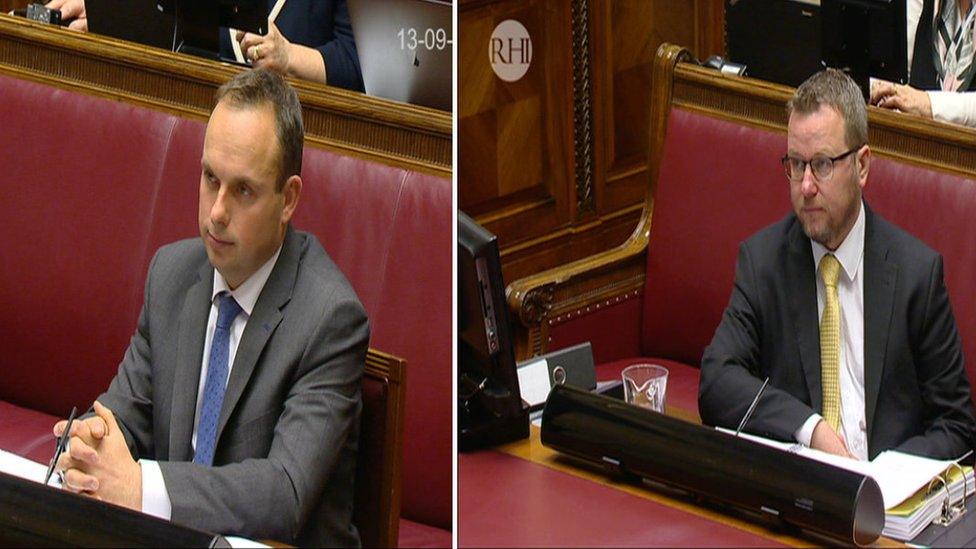
Andrew Crawford and Timothy Cairns have said they passed on concerns about alleged abuse of the RHI scheme
Later on Wednesday, Mr McCormick claimed two DUP special advisers withheld vital information from officials about abuse of the scheme.
The inquiry has already heard much about an email sent by Andrew Crawford to Timothy Cairns in summer 2015, which warned of a future spike in applications to the scheme, and talked of exploitation, where poultry farmers were "heating empty sheds" because the subsidies were so lucrative.
Mr Cairns was advising Enterprise Minister Jonathan Bell during that time, while Mr Crawford had recently left that department to move to finance with Arlene Foster.
Mr McCormick said, had the threat to the budget been communicated clearly by the DUP advisers to departmental officials, they would have acted on it.
The ex-advisers have denied they deliberately kept information from the department, but Mr McCormick said it should have been elevated to the highest levels and would not have been lost on officials.
But inquiry panellist Keith MacLean suggested the details had been passed on, but simply not understood fully by the officials.

5. 'Claim ministers ignored code shocking' - Sir Patrick Coghlin
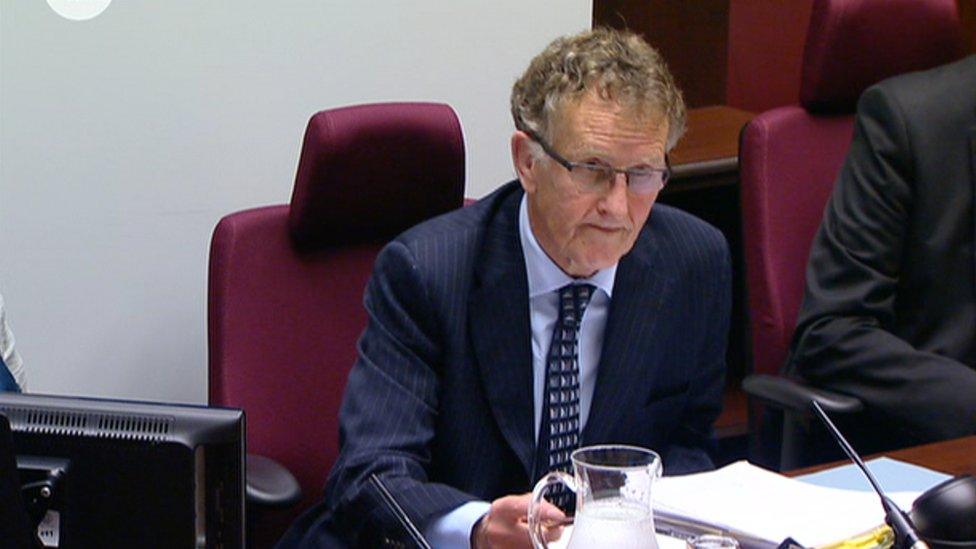
Sir Patrick Coghlin has been critical of how basic rules of governance were not always adhered to by Stormont's parties
The inquiry only sat three days this week, and Thursday dredged up more revelations about how basic rules of governance weren't adhered to by executive ministers and had no real force.
The claim was made by Andrew McCormick - who has years of experience leading Stormont departments.
He added to evidence already heard by the inquiry that minutes of departmental meetings were often not recorded: his view was civil servants felt concerned confidential information could be leaked.
The senior official said rules were ignored so often that ministers "tweeting (information) from the executive room" was common, and there was no way of censuring them.
"The ministerial code says all kinds of things about what should happen," he said.
"But the realpolitik is that they are almost impossible to enforce and therefore they are not enforced, and hadn't been enforced."
Sir Patrick said that was alarming, and there could not be a "positive public perception" of the political process when it was clear regulations weren't being followed.

Tuesday starts another week of questioning, with officials from the Ulster Farmers' Union and Stormont's economy department lined up.
You can find the latest from the RHI inquiry on BBC News NI and on the live page.
- Published5 September 2018
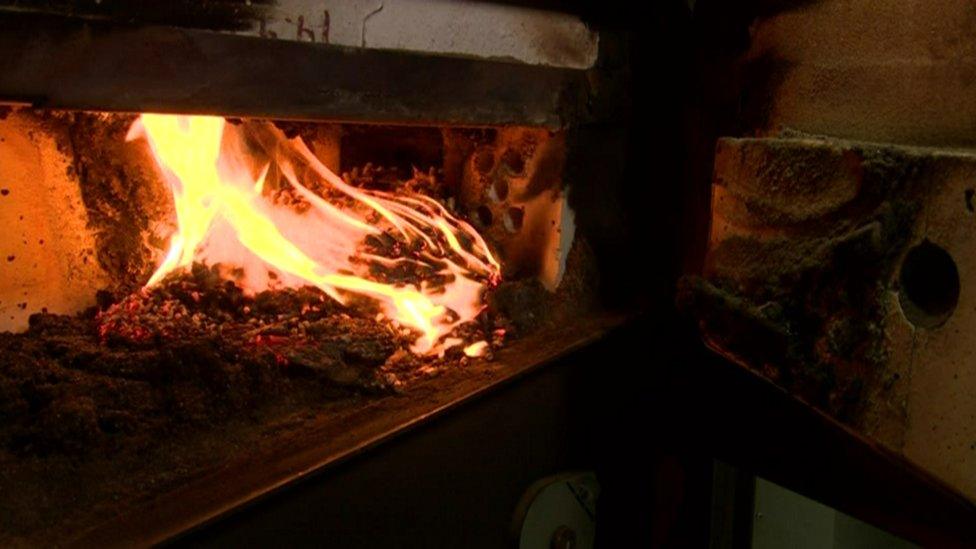
- Published7 November 2017

- Published23 October 2019

- Published13 March 2020
